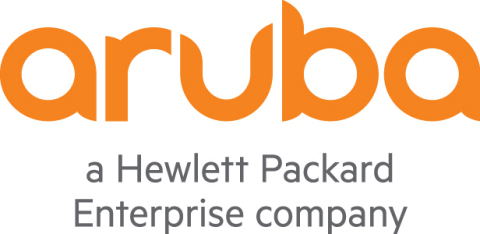SANTA CLARA, Calif.--(BUSINESS WIRE)--Aruba, a Hewlett Packard Enterprise company (NYSE: HPE), today announced that the University of Minnesota is delivering secure, high-performance wireless to its 48,000 students and 18,000 faculty and staff with an Aruba mobile-first network. The new network is instrumental in allowing the University to reliably connect 116,000 unique devices daily, including 3,600 Internet of Things (IoT) devices.
With the University’s previous network, performance lagged, resulting in user complaints, and the IT team had a difficult time authenticating devices onto the network which prevented them from moving confidently towards IoT. After a thorough evaluation of multiple vendors and a proof-of-concept test, the University chose Aruba.
Working with channel partner, Pier Group, the University installed more than 10,000 Aruba access points running ArubaOS 8 software, across its five campuses, including residence halls, to boost its wireless coverage and performance, while enhancing its users’ experience. The ArubaOS 8 Live Upgrade capability allows the University’s small IT team to update the network quickly and easily without interrupting service, so they no longer need to schedule downtime for these upgrades.
The University is also using Aruba’s unique AirMatch RF optimization feature, which enables the Wi-Fi network to automatically select the best channels to deliver the highest quality user experience possible, even in very congested areas. With Aruba AirWave for network management, the IT team is also benefiting from a wealth of capabilities they did not have previously including rogue detection, built-in application tuning, and easy-to-use management troubleshooting dashboards.
“With Aruba’s AOS 8 software features and AirWave, our team can quickly find and mitigate problems,” said Steve Fletty, Network Design Engineer at the University of Minnesota. “This saves us time and allows us to focus on more strategic priorities.”
The University’s IT team is also using Aruba ClearPass for secure authentication of devices including game consoles, Amazon Echos, Google Homes and other IoT devices in the residence halls. Prior to deploying ClearPass, the IoT devices on campus were limited to approximately 200, but increased to 3,600 once ClearPass was installed.
“With ClearPass, we can create a separate security domain for these IoT devices that tend to be more personal in nature,” said Louis Hammond, Service Owner, Voice and Data Network Services, and Next Generation Network Project Owner, for the University of Minnesota. “This gives us the confidence that we can continue to connect new devices to the network as they appear without worrying about security breaches.”
Hammond says that beyond the immediate benefits for the IT team, students and faculty are enjoying an improved user experience throughout the campus. Within classrooms and lecture halls, applications like Moodle can keep up with real-time activity on the app, and professors can now allow students to use their personal devices for clicker-enabled applications. The University’s nursing school, which had issues with the previous wireless network kicking students off during their interactive board testing, is now reporting that its students can complete their exams the first time through.
“Overall, complaints about the network have been greatly reduced,” Hammond said. “We’re receiving praise from students and faculty alike, who have noticed a big difference in the performance. We’re hearing that instructors are feeling encouraged to use technology in the classroom to improve student learning.”
In the near future, the University plans to extend its coverage to additional outdoor areas. Currently, the outdoor deployments are limited to specific areas and use cases such as for researchers using iPads in the fields of the St. Paul campus to enter and track data about water, bacteria and other natural elements. According to Hammond, the University would like to expand the outdoor coverage to campus common spaces and athletic fields.
Added Hammond, “We plan to continue building upon this network foundation, adding more devices and applications, and covering more of our campus to satisfy our University’s needs.”
About Aruba, a Hewlett Packard Enterprise company
Aruba, a Hewlett Packard Enterprise company, is a leading provider of next-generation networking solutions for enterprises of all sizes worldwide. The company delivers IT solutions that empower organizations to serve the latest generation of mobile-savvy users who rely on cloud-based business apps for every aspect of their work and personal lives.
To learn more, visit Aruba at http://www.arubanetworks.com. For real-time news updates follow Aruba on Twitter and Facebook, and for the latest technical discussions on mobility and Aruba products visit Airheads Social at http://community.arubanetworks.com.




